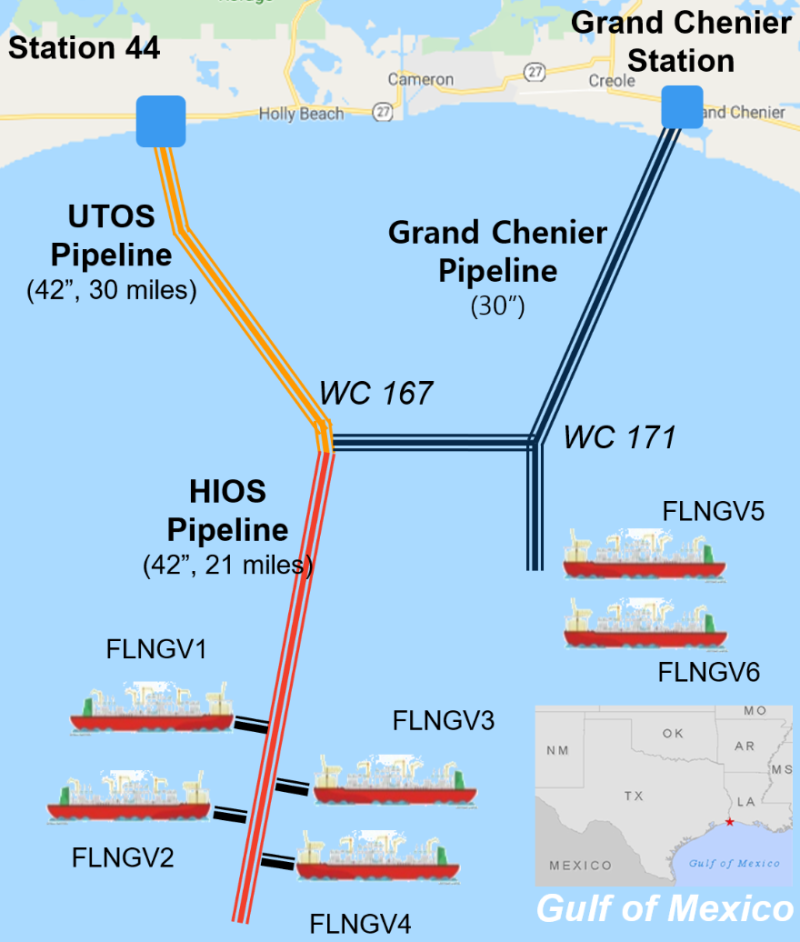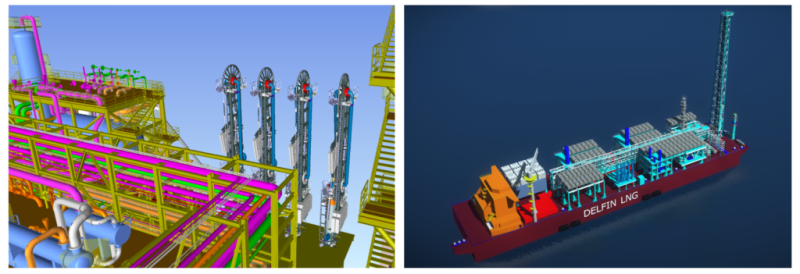Delfin Midstream has entered a design and engineering contract with Wison Offshore & Marine to develop floating liquefied natural gas (FLNG) vessels for application on the company’s Deepwater Port projects currently under construction in the US Gulf of Mexico.
Delfin is accelerating the development of the remaining FLNG vessel slots at the Delfin LNG project given the strong market outlook for cleaner-burning fuels in Asia and the continuing strong demand in Europe. Teaming up with Wison will allow Delfin to construct new FLNG vessels to support its deepwater port projects and the export of clean burning US natural gas to worldwide markets.
“Wison has been visionary to develop its design, engineering, and construction capabilities for the LNG industry and in particular the floating LNG segment,” said Wouter Pastoor, Delfin's chief operating officer. “Sharing our commitment and entrepreneurial spirit, Wison’s goal is to continue into a full FEED later this year such that FLNG vessel construction can start at their shipyard in mid-2024.”
Delfin has been developing the Delfin LNG Deepwater Port project, which can support four FLNG vessels with a combined export capacity of up to 13.3 million tons per year. The company has secured commercial agreements for LNG sales and liquefaction services and is in the final phase toward FID on its first two FLNG vessels.

Delfin’s existing projects include Delfin LNG and Avocet LNG. Delfin LNG project is a brownfield Deepwater Port requiring minimal additional infrastructure. Delfin purchased the 42-in.-diameter UTOS pipeline, one of the largest natural gas pipelines in the Gulf of Mexico, and received a positive record of decision from the US Maritime Administration and approval from the US Department of Energy for long-term exports of LNG to countries that do not have a free-trade agreement with the United States.
The final investment decision (FID) on the first two Delfin FLNG units has been delayed over the past few years. In January 2022, Delfin boss Dudley Poston said he felt confident the decision would be made during that calendar year. Poston said then that each vessel would cost about $2 billion, with the first expected to enter service 4 years after FID. Front-end engineering and design work on the initial vessel was completed by Samsung and Black & Veatch.
In June, Delfin entered into a strategic investment agreement with Mitsui O.S.K. Lines Ltd. (MOL), which will see MOL making an unspecified investment in Delfin and an MOL representative joining Delfin’s board of directors.
The agreement provided MOL with the opportunity to make additional investments directly in Delfin’s FLNG vessels and establishes a framework for MOL to assist in the construction and operation of these vessels.


